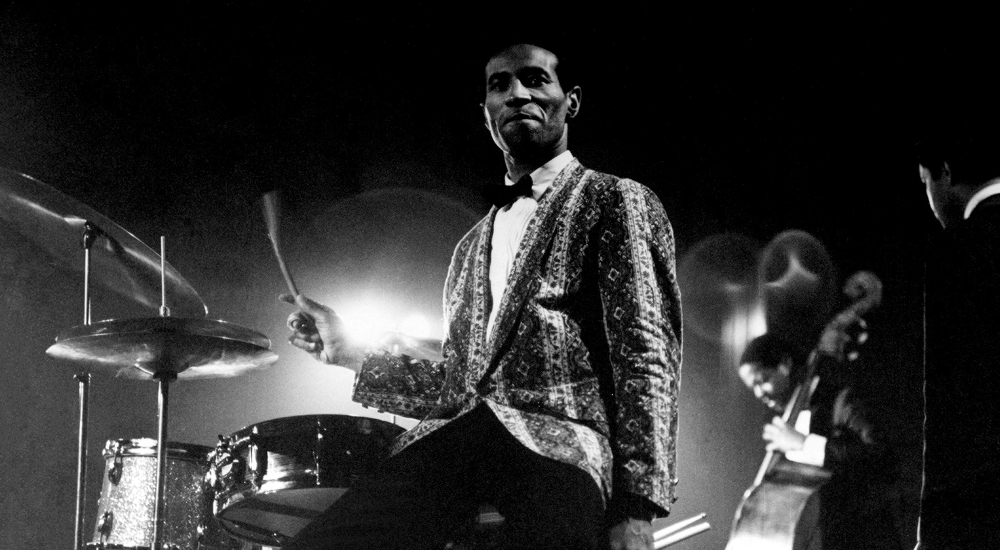Unless you're deep into jazz or music history, it's likely you've never heard of Max Roach. The drummer was a true revolutionary, both on stage and out in the world. Though often overshadowed by more famous musicians and activists, he blazed his own trails, leaving behind an impressive legacy.
The Drum Also Waltzes, which play as part of PBS's American Masters series later this year, is a pretty standard documentary. Largely skipping over his early years, the film focuses on Roach's impressive time as a touring musician. Collaborating with the likes of Dizzy Gillespie, Miles Davis and especially Charlie Parker, he innovated the bebop style. After the death of some of his bandmates, he began progressing to more experimental beats, and taking a more active role in the civil rights movement. As one talking head explains, most jazz albums featured beautiful, abstract covers, hiding the racial identities of the performers. But Roach kicked off the 1960s with his defiant We Insist!, which featured his trio at lunch counter demanding service. As a cultural force and as piece of music, it's been considered an all-timer.
For those who are especially into music theory and experimental jams, there are great recordings of Roach's rehearsals with M'Boom, his all-percussion group. Questlove, one of our most famous drummers, helps us understand just how unusual and difficult a band like that would be. He also pays tribute to Roach by playing his own version of "The Drum Also Waltzes" in his practice space. And that's why this doc is worth seeing: the unbelievable performances. Whether Roach is playing for talk show hosts, clubgoers or children, there's a level of passion, skill and joy on display. Even in old age, he remained a student. One of his children recalls him saying about the drums: "I'm just now starting to master it." It's an admirable philosophy, though the film acknowledges that his devotion to music often got in the way of his role as a husband and a father.
The filmmaking on display here isn't groundbreaking, like Roach was. But it perfectly captures an unfortunately forgotten iconoclast of music and advocacy.

